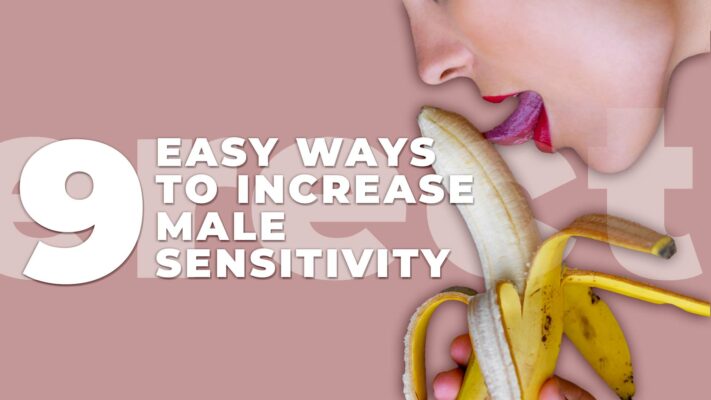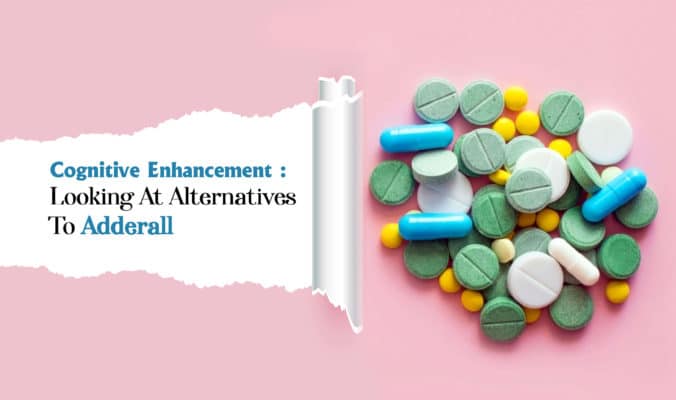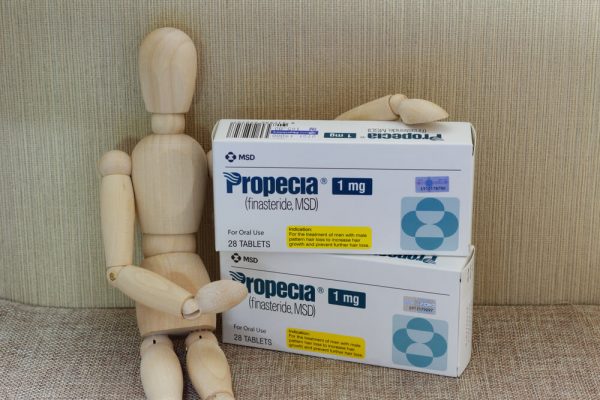NoFap Premature Ejaculation: Can PE Be Cured Using NoFap?
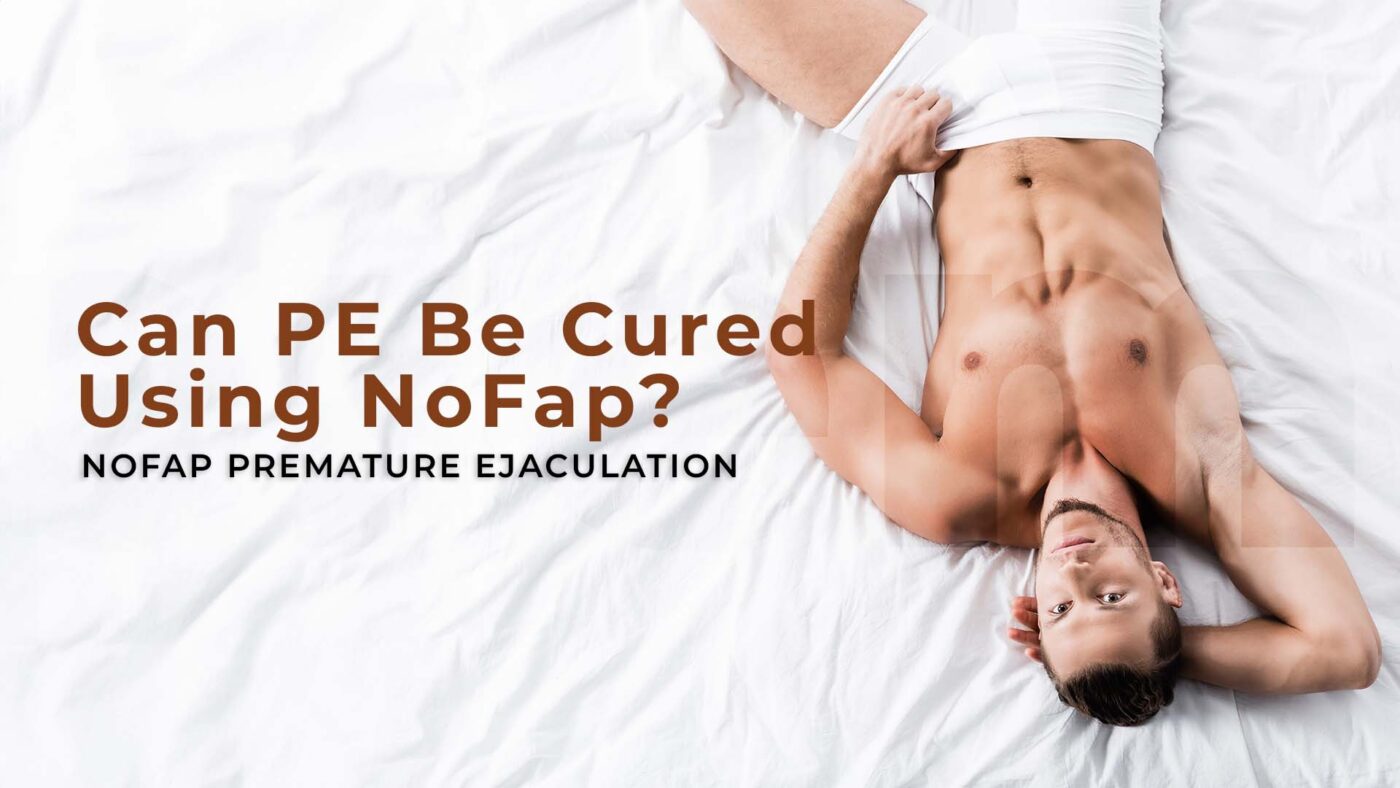
- NoFap is an online community that encourages people to “abstain from PMO,” i.e., porn, masturbation and orgasm.
- This approach is based on limited evidence, i.e., not having sex/releasing semen for a while can increase testosterone in your body. Hence, it increases virility, manliness, and muscle growth.
- There’s no conclusive evidence that NoFap or abstinence from masturbation reduces sexual problems, e.g., premature ejaculation (PE).
- There are many science-backed options for treating PE and having a healthy sex life, e.g., a nutritious diet, oral medications like SSRIs, and psychological counseling. There are behavioral techniques like the start-stop method or edging to improve control over ejaculation.
NoFap is an anti-masturbation and porn recovery movement. With 1.2M+ members in the NoFap Reddit group, it’s clear that it’s still going strong. Thousands of “fapstronauts” are logging in daily on the NoFap website even after a decade after its launch. It started in 2011.
But does it really work? Does NoFap help with sexual dysfunction, e.g., premature ejaculation? SSRIs (selective serotonin reuptake inhibitors) like dapoxetine provide quick relief as a PE treatment. We need to understand whether non-medical approaches like NoFap can be useful for long-term sex health.
We will explore the topic in detail in this article so you can decide if it’s right for you.
Table of Contents
What is NoFap?
NoFap is an online peer support forum. It’s for people who want to give up their addiction of pornography, masturbation, and orgasm (PMO). The term “nofap” is a combination of “no” and “fap”. “Fap” is a slang term for male masturbation.
Supporters believe that “rebooting” or avoiding masturbation for some time improves sexual functioning. They are motivated by the belief that it offers several other physical and mental health benefits too. The NoFap rebooting lasts for 7 days to 3 months.
The community goes to the extent of claiming that this method can cure sexual problems. In one of its surveys, 46% of participants reported that they had experienced improvement in their sexual dysfunction. 14% claim that this “rebooting” has cured their problem.
The question is: how many of these claims are scientifically true?
Are there any real benefits of NoFap to overcome male sexual health problems, e.g., premature ejaculation? Let’s find out.
Benefits of NoFap: What Do NoFappers Say?

People choose to avoid masturbation or porn for various reasons. Porn viewing or self-pleasuring—despite their ubiquity—is still a taboo in many cultures and societies. And now, NoFap has added to the ongoing narrative around self-pleasuring being unhealthy and harmful.
NoFap/Reboot members use abstinence as a self-improvement practice. They claim that the practice can:
- Increase energy level
- Improve mental clarity and focus
- Reduces brain fog
- Increase sexual self-regulation
- Enhance sexual function
- Improve fertility
- Better emotional well-being
- Increase confidence and self-esteem
- Lower stress and anxiety levels
- Improve physical health in general
That’s not all; some NoFappers report having a deeper manly voice and muscle growth after practicing “fapstinence”.
Two similar other practices are semen retention and celibacy. Semen retention involves “retaining” semen by not ejaculating. It can happen regardless of whether you have sex, watch porn or not. It’s also known as “coitus reservatus” or “sexual continence”. Some men follow this for similar reasons, e.g., self-control, improved mental clarity, and spiritual benefits. They believe that releasing semen frequently weakens male health.
Celibacy involves abstaining from sexual activity altogether. It’s followed due to religious reasons in general.
However, their benefits are only self-reported and anecdotal. Are there any real scientific data in support of these practices?
Benefits of NoFap: What Science Says
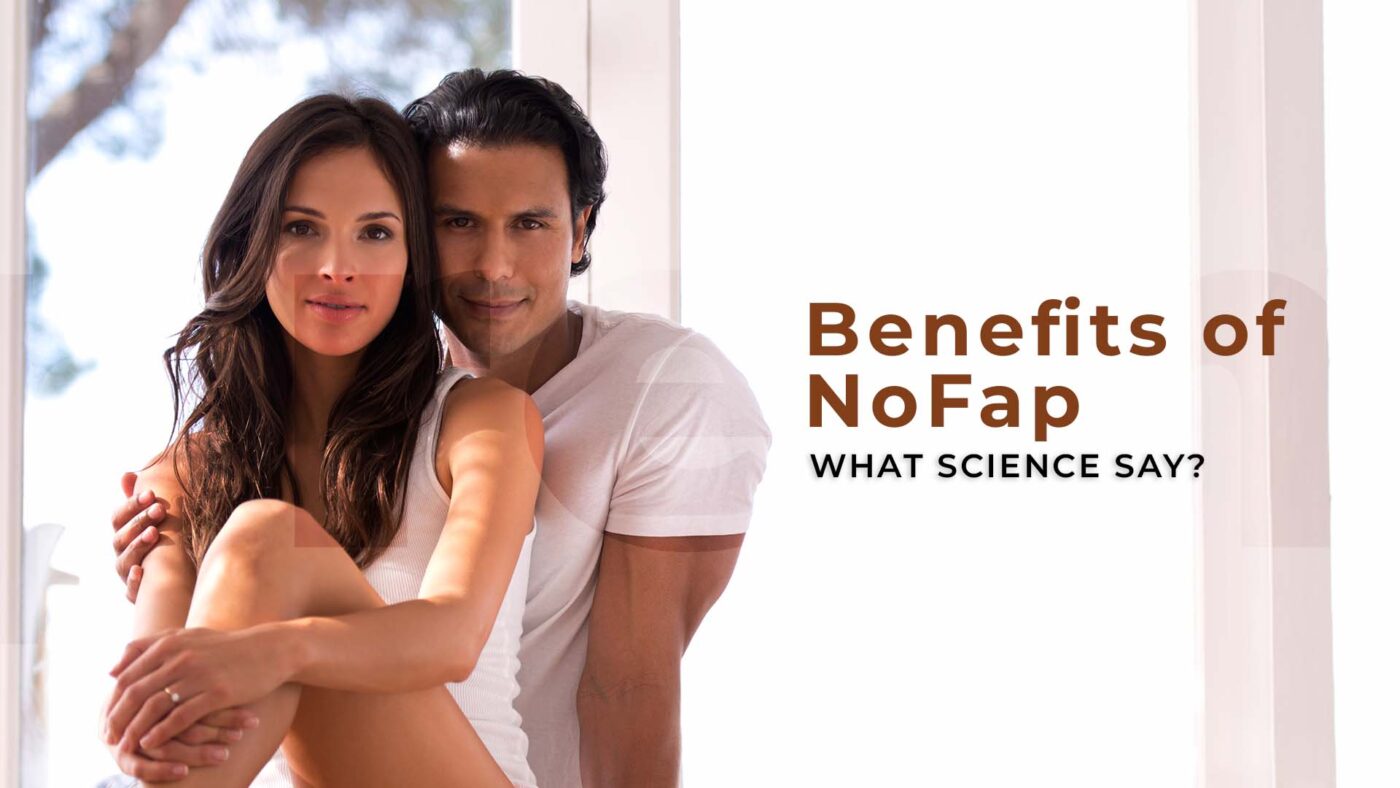
Men who have an interest in the NoFap program may be wondering, “what happens after 7 days of not ejaculating?” or “What happens if we don’t release sperm for a long time?”
Hilary MacQueen, a professor of Health Sciences, has simply put the answer. If a man goes too long without ejaculating, the body reabsorbs the sperm that isn’t released. This process isn’t known to cause any health problems in general.
What about the perceived benefits of not releasing semen or having orgasms?
- Older studies suggest not ejaculating for some time may lead to a short-term spike in testosterone.
However, an increasing number of new studies show that there’s no link between frequent orgasms and testosterone. It doesn’t matter if you avoid climaxing either through masturbation or sex with your partner.
- A meta analysis published in Scientific Reports suggests the same might be true. Sexual activity has no effect on physical performance, strength, and power. The test measured the energy levels of those who had sex 30 minutes to 24 hours before the athletic event. The researchers compared them with those practicing abstinence. The results weren’t any different.
Source: https://www.nature.com/articles/s41598-022-19882-2/figures/1
The data reflects that neither sexual activity nor abstinence affects aerobic fitness assessment.
- A study in the Journal of Assisted Reproduction and Genetics shows a picture in favor of NoFap. It shows that longer abstinence may result in better semen volume and sperm count. However, the author points out that there are conflicting data regarding this. So, there’s a need for more research.
- Not having sex for a long time may make mental health problems worse instead of healing them, especially when you’re going through a restrictive, grueling 90-day abstinence regimen.
Anxiety and depression are less common among sexually active people. It’s revealed by research during the Covid lockdown. It’s no surprise, given the release of feel-good chemicals, e.g., endorphins in the brain during moments of pleasure.
There is no robust scientific evidence on the negative effects of masturbation to this day.
Even so, abstinence is still useful in certain situations:
- Abstaining from sex relieves the worries of getting STDs or STIs
- Not having sex/orgasms is an important part of the recovery process during a disease (e.g., a heart problem) or after a medical procedure like surgery.
- People can choose to remain sexually abstinent to go along with their religious beliefs.
- Solo pornography viewing can harm romantic relationships.
Still, the health claims by the NoFap Subreddit remain unsubstantiated.
Can NoFap Help You Overcome Premature Ejaculation?
The short answer is NO!
PE is a common male sexual health problem. It occurs when a man reaches orgasm and releases semen within 1-2 minutes of vaginal penetration. Or, he ejaculates sooner than he or his partner would like.
A 2018 study in the Asian Journal of Andrology tried to find out the connection between abstinence and PE. It found none.
Source: https://www.ncbi.nlm.nih.gov/pmc/articles/PMC6038167
Abstinence time does not affect ENMG test results in PE patients.
Various factors can cause PE, and NoFap does not seem to help with any of them. For example, the NoFap challenge does not reduce performance anxiety. Anxiety is a leading cause of PE and other sexual problems.
Your body naturally needs to release its sexual tension (“tumescence”). It does so by reaching climax and discharging semen.
By suppressing this urge, it can retain a semen build-up, causing epididymal hypertension, i.e., pain and discomfort in the testicles, also known as “blue balls”.
Instead, masturbating a couple of hours prior to intercourse may help with PE and delay ejaculation. Also, ejaculating more often might lower the risk of prostate cancer.
Masturbation and pornography viewing can indeed become compulsive sexual behaviors. These practices can lead to multiple negative side effects when done in excess. Excessive use of online porn may even lead to sexual dysfunctions. Even so, additional research in this area is needed to support this claim.
At the same time, masturbation is not as addictive as drugs. Its addiction is not recognized as a mental health condition. You won’t find it in the DSM-5 (Diagnostic and Statistical Manual of Mental Disorders).
NoFap Alternatives/Healthier Substitutes for PE

Here are 10 healthier alternatives or evidence-based substitutes to NoFap for treating PE:
- Pelvic floor exercises
Kegels and other pelvic floor muscle exercises can improve control over ejaculation.
- Relaxation techniques, e.g., meditation
By reducing anxiety and stress, you can improve your sexual performance.
- Start-stop technique or edging
Practice stopping during sexual activity when you are on the verge of climaxing. Resume the activity again to delay ejaculation and last longer in bed.
- Squeeze technique
Apply light pressure below the glans of the penis just before orgasm during sex or masturbation.
- Psychological counseling or therapy
This will help if there’s an underlying mental health issue causing PE. Your doctor may recommend treatments like Cognitive Behavioral Therapy (CBT).
- Desensitizing/numbing creams and extra thick/extended pleasure condoms
You can use numbing creams, sprays, and desensitizing condoms to reduce penile sensitivity. This may help slow down ejaculation.
- Regular physical activity
Good circulation is vital to your sexual health. When you get moving on a regular basis, this will improve your overall health and performance in bed.
- Healthy diet
Eating healthy, balanced meals with nutrients, e.g., zinc, folic acid, and biotin, may help lower PE.
- Quitting smoking
Smoking cigarettes is detrimental to male sexual functions. Nicotine use may cause an imbalance in reproductive hormone production. To overcome PE, choose nicotine gum and lozenges over smoking.
- Limiting alcohol consumption
Alcohol can interfere with the signals between the brain and the body. When there’s alcohol in your system, orgasm-specific sensory information can be blocked. Lowering alcohol intake can improve your PE and overall sexual function.
If you have concerns about PE or any sexual dysfunction, speak to a healthcare professional, e.g., a urologist or sex therapist. They can give personalized advice, explore underlying causes, and recommend appropriate treatment for your PE.
Final Thoughts: Is NoFap Overhyped or a Great Hope for Men with PE?
As it turns out, maintaining regular sexual activity, e.g., masturbation, has no ill effects on your sexual health. Ejaculating prior to intercourse may even improve control over orgasms. So, NoFapping will not cure your PE. It can make the issue worse.
The benefits of avoiding ejaculation are supported only by a small number of studies, whether it’s through semen retention or a no-porn, no-masturbation routine.
This calls for having a balanced approach, not a drastic overhaul of your sex life.
It doesn’t mean that future research can’t reveal a more meaningful relationship between sexual abstinence and PE. But we currently lack enough clinical evidence to prove they’re connected.
FAQ
References
- FAP | Encyclopedia.com. (n.d.). https://www.encyclopedia.com/social-sciences/encyclopedias-almanacs-transcripts-and-maps/fap
- Schussler, A. (2013). From Eroticism to Pornography: The Culture of the Obscene. Procedia – Social and Behavioral Sciences, 92, 854–859. https://doi.org/10.1016/j.sbspro.2013.08.765
- Zimmer, F., & Imhoff, R. (2020). Abstinence from Masturbation and Hypersexuality. Archives of Sexual Behavior, 49(4), 1333–1343. https://doi.org/10.1007/s10508-019-01623-8
- MacQueen, H. (n.d.). The science of sperm. Open Learning. https://www.open.edu/openlearn/body-mind/health/health-sciences/the-science-sperm
- A Dictionary of Psychology. (2015). In Oxford University Press eBooks. https://doi.org/10.1093/acref/9780199657681.001.0001
- Gander, K. (2018, September 5). “It gave me superpowers”: The men who say sexual abstinence changed their lives | The Independent. The Independent. https://www.independent.co.uk/life-style/love-sex/masturbation-giving-up-effects-life-changes-reddit-nofap-men-say-it-gave-them-superpowers-a7345466.html
- Endocrine response to masturbation-induced orgasm in healthy men following a 3-week sexual abstinence. World Journal of Urology, 19(5), 377–382. https://doi.org/10.1007/s003450100222
- Zavorsky, G. S., & Brooks, R. A. (2022). The influence of sexual activity on athletic performance: a systematic review and meta-analyses. Scientific Reports, 12(1). https://doi.org/10.1038/s41598-022-19882-2
- Mascherek, A., Reidick, M. C., Gallinat, J., & Kühn, S. (2021). Is ejaculation frequency in men related to general and mental health? Looking back and looking forward. Frontiers in Psychology, 12. https://doi.org/10.3389/fpsyg.2021.693121
- Hanson, B. M., Aston, K. I., Jenkins, T. G., Carrell, D. T., & Hotaling, J. M. (2017). The impact of ejaculatory abstinence on semen analysis parameters: a systematic review. Journal of Assisted Reproduction and Genetics, 35(2), 213–220. https://doi.org/10.1007/s10815-017-1086-0
- Mollaioli, D., Sansone, A., Ciocca, G., Limoncin, E., Colonnello, E., Di Lorenzo, G., & Jannini, E. A. (2021). Benefits of sexual activity on psychological, relational, and sexual health during the COVID-19 breakout. The Journal of Sexual Medicine, 18(1), 35–49. https://doi.org/10.1016/j.jsxm.2020.10.008
- How to prevent STIs. (2024, April 9). Sexually Transmitted Infections (STIs). https://www.cdc.gov/sti/prevention/index.html
- Religiosity and sexual abstinence among Nigerian youths: does parent religion matter? (2019) BMC Public Health, 19(1).
- Yang, B., Xia, J., Hong, Z., Zhang, Z., Han, Y., Chen, Y., & Dai, Y. (2018). No effect of abstinence time on nerve electrophysiological test in premature ejaculation patients. Asian Journal of Andrology, 20(4), 391. https://doi.org/10.4103/aja.aja_10_18
- Geuens, S., De Win, G., & Jacobs, T. (2023). Comment on “Reboot/NOFAP participants Erectile Concerns Predicted by anxiety and Not Mediated/Moderated by Pornography viewing.” Journal of Psychosexual Health, 5(4), 272–273. https://doi.org/10.1177/26318318231222160
- Healthdirect Australia. (n.d.). Premature ejaculation. Treatment, Causes and Diagnosis | Healthdirect. https://www.healthdirect.gov.au/premature-ejaculation
- Fong, T. W. (n.d.). Understanding and managing compulsive sexual behaviors. PubMed Central (PMC).
- DSM. (n.d.). https://www.psychiatry.org/psychiatrists/practice/dsm
- Pastore, A. L., Palleschi, G., Fuschi, A., Maggioni, C., Rago, R., Zucchi, A., Costantini, E., & Carbone, A. (2014). Pelvic floor muscle rehabilitation for patients with lifelong premature ejaculation: a novel therapeutic approach. Therapeutic Advances in Urology, 6(3), 83–88. https://doi.org/10.1177/1756287214523329
- Raveendran, A. V., & Agarwal, A. (2021). Premature ejaculation – current concepts in the management: A narrative review. International Journal of Reproductive BioMedicine (IJRM). https://doi.org/10.18502/ijrm.v19i1.8176
- Cai, T., Verze, P., Massenio, P., Tiscione, D., Malossini, G., Cormio, L., Carrieri, G., & Mirone, V. (2016). Rhodiola rosea, folic acid, zinc and biotin (EndEP®) is able to improve ejaculatory control in patients affected by lifelong premature ejaculation: Results from a phase I-II study. Experimental and Therapeutic Medicine, 12(4), 2083–2087. https://doi.org/10.3892/etm.2016.3595
- Valenzuela, C. F. (1997). Alcohol and neurotransmitter interactions. PubMed Central (PMC). https://www.ncbi.nlm.nih.gov/pmc/articles/PMC6826822
- Dubin, J. M., Aguiar, J. A., Lin, J. S., Greenberg, D. R., Keeter, M. K., Fantus, R. J., Pham, M. N., Hudnall, M. T., Bennett, N. E., Brannigan, R. E., & Halpern, J. A. (2022). The broad reach and inaccuracy of men’s health information on social media: analysis of TikTok and Instagram. International Journal of Impotence Research. https://doi.org/10.1038/s41443-022-00645-6
Disclaimer
HisBlue is not a substitute for professional medical care or advice from your doctor. The health information on the HisBlue website is general and provided for your information only. We have ensured our content is accurate and current, with reviews by expert doctors. However, we cannot guarantee its accuracy or timeliness. This information is not meant to replace the diagnosis, treatment, or judgement of your doctor or another qualified healthcare provider.


